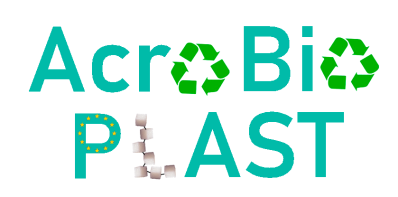MER-CLUB"Kick off meeting" à Sukarrieta (Espagne)
Le 10 déc. 2019

Biotechnology to reduce mercury pollution in marine sediments
European Union EASME, European Maritime and Fisheries Fund (EMFF) programme
01/12/2019 - 30/11/2022
Coordinateur principal
Dr. Laura Alonso-Sáez, AZTI
Responsable scientifique IPREM
Dr. David Amouroux, IPREM
Le projet MER-CLUB a pour objectif de développer une technologie basée sur l'utilisation de bactéries marines capables de dégrader un composé toxique du mercure qui se bioaccumule dans le réseau trophique, et ainsi d'améliorer la qualité du milieu marin.
L'initiative a été lancée fin 2019, coordonnée par le centre technologique AZTI, et avec la participation de sept partenaires internationaux, dont l'ICM-CSIC, plusieurs universités (UAB, UPPA) et centres technologiques et une PME.
La recherche est financée par le programme EASME de l'Union européenne, Fonds européen pour les affaires maritimes et la pêche (FEAMP) et dispose d'un budget d'un million d'euros.
www.mer-club.eu
----------
English version:
- The aim of the MER-CLUB project is to develop a technology based on the use of marine bacteria that have the capacity to degrade a toxic mercury compound that bio-accumulates in the trophic network, and thus improve the marine environment quality.
- The initiative was launched in late 2019, coordinated by AZTI technology centre, and with the participation of seven international partners, including the ICM-CSIC several universities and technology centres and an SME.
- The research is financed by the European Union EASME, European Maritime and Fisheries Fund (EMFF) programme and has a budget of one million of Euros.
(Barcelona, on xxxx April 2020). - Sediments play a key role in marine ecosystems, as they provide nutrients that are part of the diet of aquatic species, and mineral resources that guarantee biological wealth and diversity. Unfortunately, the pollution resulting from industrial effluents and wastewater accumulates in these sediments, converting them into a pollutant reservoir. Until the onset of the application of the Dumping Law (in the 90s), the sediments had accumulated large quantities of metals, including mercury.
To reduce the presence of mercury in sediments and improve the quality of the marine environment, an international consortium led by Dr. Laura Alonso-Sáez from AZTI, a technology centre specialized in the marine and food chain value, and comprised of the Institute of Marine Sciences (ICM-CSIC, IP: Silvia G. Acinas), the Universitat Autònoma de Barcelona (UAB, IP: Olga Sánchez), the Swedish University of Agriculture Science (SLU, IP: Stefan Bertilsson), the University of Pau and Pays de l’Adour (UPPA, IP: David Amouroux), the Association for innovative Medical-, Bio-, and Environmental Technologies (GMBU, IP: Ulrich Soltmann) and an SME, AFESA Medio Ambiente S.A. (AFESA, IP: Eduardo Alzola), is developing the MER-CLUB research project.
The project, which was launched in late 2019, focuses on developing a biotechnological solution that will use detoxifying bacteria to reduce the presence of mercury in marine sediments.
“MER-CLUB comprises the design of a technology for the bio-remediation of marine sediments contaminated with mercury by using detoxifying marine bacteria. Bioremediation is the biotechnological process that involves the use of microorganisms to restore a pollutant-altered environment. In other words, we use nature’s microbial resources and technological knowledge to return nature to its previous state”, says Dr. Silvia G. Acinas leading the omics analyses of MER-CLUB at the ICM-CSIC.
A proof-of-concept of the new bio-remediation system will be carried out at a pilot plant by AFESA, within the framework of the initiative. Before arriving at this test, several fundamental research lines will be developed, using innovative methods such as advanced microorganism culture techniques on marine sediments by AZTI, single-cell isolation of mercury detoxifying consortia by SLU, Omics techniques to learn about the diversity of mercury detoxifiers by ICM-CSIC, physiological characterization of mercury-degrading microorganisms by UAB, immobilization of mercury-detoxifying cells by GMBU and isotopic analyses of mercury by UPPA, among others.
The project aims to provide a biotechnological alternative to reduce mercury levels in dredged sediments so that they can be safely returned to nature and thus improve the environmental quality.
A global response
Mercury pollution is a critical global problem and has a great socioeconomic and environmental impact. From the start of the industrial era, mercury levels in the environment have increased considerably, until they have reached concentrations that affect organisms in ecosystems.
Industrial pollution, harmful for the marine environment at a local, regional and global level, generates serious consequences for the natural environment, and above all, for human health. At a local level, some industries that have used mercury in their technological processes, have generated high pollution levels in their vicinity. But, in addition to this local pollution, there are forms of volatile mercury which, once they reach the atmosphere, can travel large distances and settle a long way from their origins.
The Minamata Convention is an international treaty designed to reduce mercury in the environment, forcing the countries involved to reduce mercury emissions, monitoring pollution and the treatment of the affected places.
The MER-CLUB project is fully in line with the Minamata goals, designing new technologies to reduce pollution caused by this metal.
“Mercury is a pollutant that can end up in marine sediments and can be transferred and bio-accumulated through different organisms in trophic networks, until it reaches us. The effects of mercury on human health are very important. Thus, reducing mercury levels in coastal sediments through bioremediation is the basis to ecosystem´s restoration. A decrease of mercury concentrations in marine ecosystems will, undoubtedly, have a direct and positive impact on human health", says Dr. Andrea G. Bravo a researcher at the ICM-CSIC, with an extensive research track record in mercury pollution in aquatic system sediments.
Financed through the European Maritime and Fisheries Fund (EMFF), MER-CLUB will continue until 2021 with a budget of one million euros.
More information available at www.mer-club.eu








_75x380.png)


